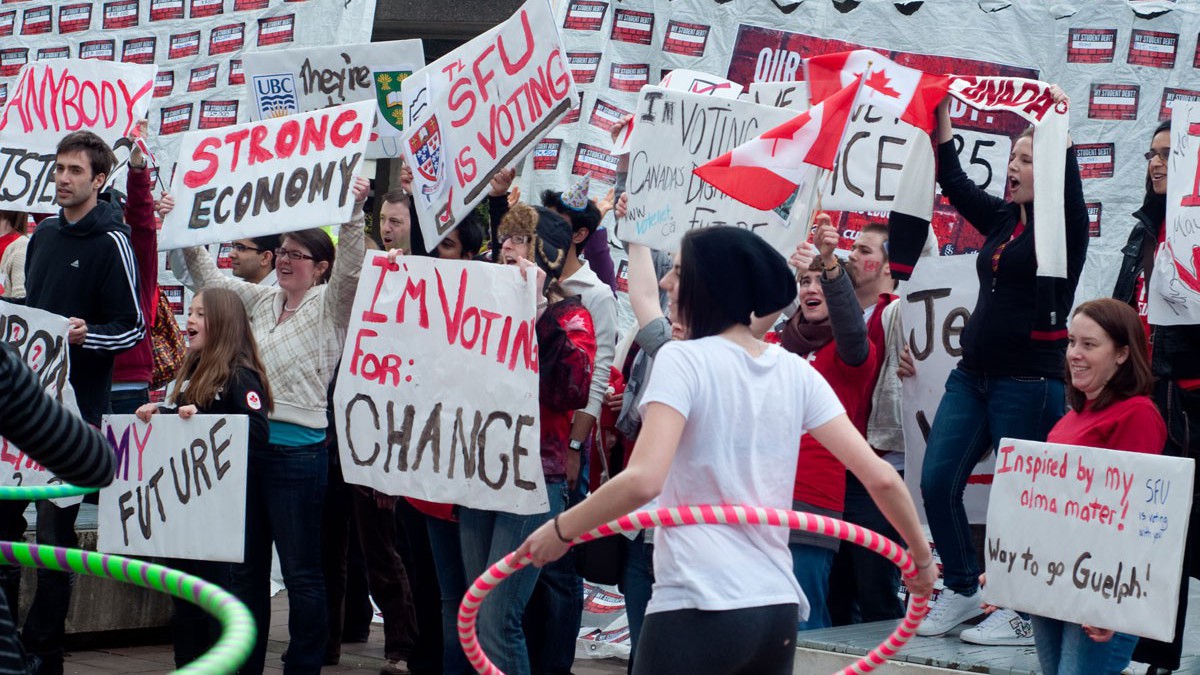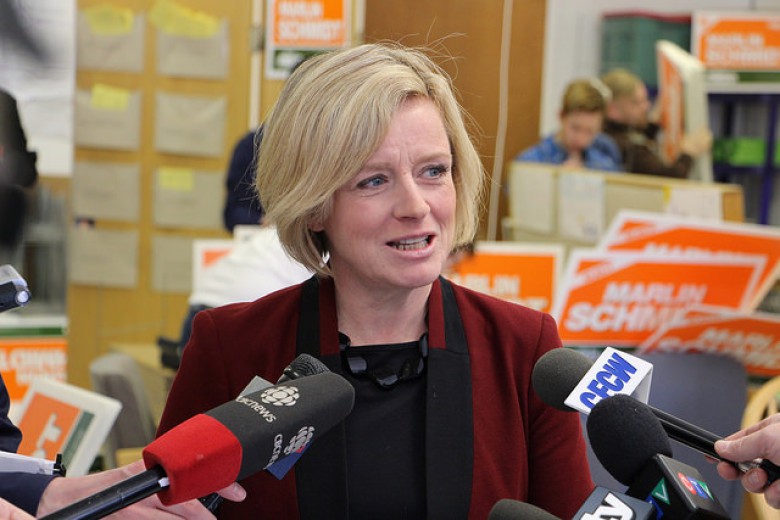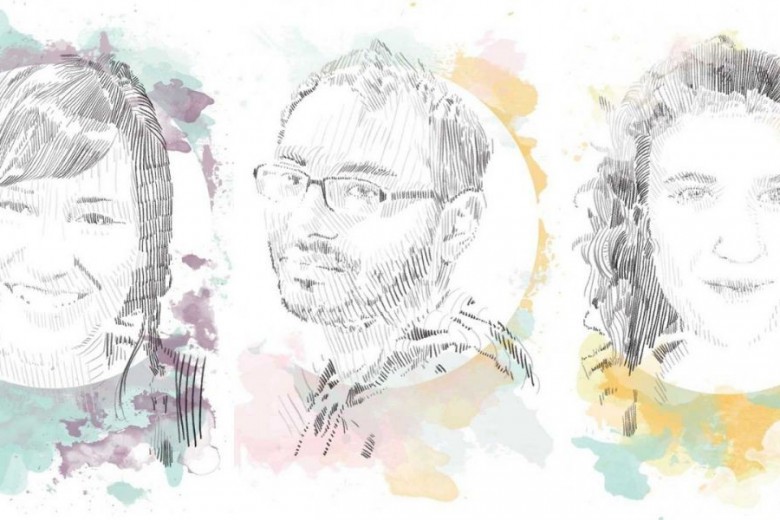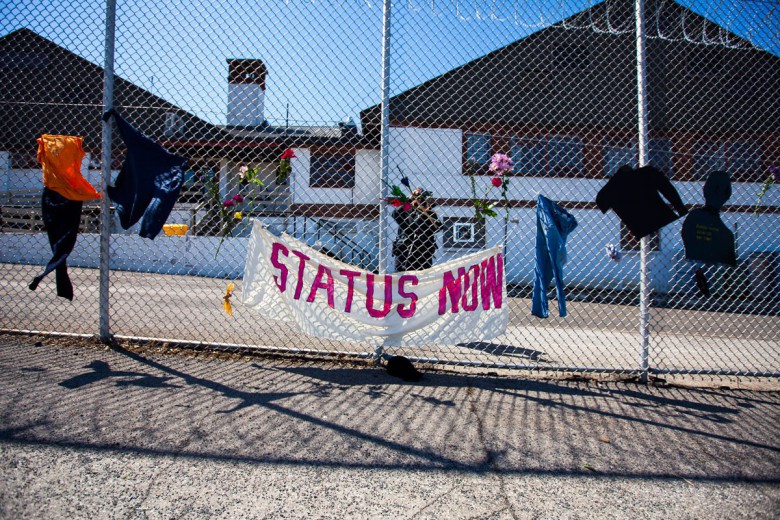As the federal election approaches, I’ve been hearing and seeing more people on the left in Canada talk about voting as “harm reduction.” In principle, I’m not against voting (although I understand why some Indigenous people refuse to vote in elections for settler-colonial political institutions). But “voting is harm reduction” (VIHR) is a really unhelpful idea.
People who’re involved with efforts to reduce the harm suffered by people who use drugs – which is where the term harm reduction comes from – may have their own things to say about the idea. Since I don’t know much about drugs and harm reduction, I won’t say more about this.
VIHR wrongly assumes that in the lead-up to elections, all we can do is vote for the least-bad candidate or party. Instead of encouraging us to think about how we can take advantage of the election season to further our projects – by challenging racist dog-whistling by politicians, doing political education like the kind the Migrant Rights Network is promoting, injecting our vision into all-candidates meetings, and mobilizing for a just transition away from fossil fuels under the banner of a Green New Deal – VIHR often sends the message that all we can do is settle for one of the options presented to us. This can lead to people doing things that are inconsistent with the commitments to radical change they espouse, like uncritically supporting NDP candidates or even voting Liberal.
“Voting is harm reduction” acts as an obstacle to thinking about how to use election time for movement organizing and building the radical left.
It reflects a culture of low expectations and a lack of strategy. The radical left in Canada lacks much confidence in any approach for moving from the status quo toward the future we want. VIHR acts as an obstacle to thinking about how to use election time for movement organizing and building the radical left.
The other problem with VIHR is this: it often implies that because none of the parties want what we want, we should vote for the candidate most likely to defeat the Conservative in a given riding because the Conservatives will do the most harm if they’re in government. That usually means voting Liberal.
But approaching elections with Anyone But the Conservatives (ABC) as our guiding principle is dangerously wrong. It underestimates just how aggressive the Liberals can be in serving the capitalist class. It was the Liberals, not the Tories, who were responsible for making a hard right turn in federal government policy in the mid-1990s. As Michal Rozworski argues in The Tyee, “The austerity implemented by the Liberals, starting with the 1994 budget, helped shift the political consensus sharply to the right.” No matter what they say when trying to appeal to voters who’re rightly horrified by Andrew Scheer’s Conservatives, the Liberals are entirely capable of draconian austerity measures. The actions of Justin Trudeau’s government have already shown us how willing the Liberals are to expand fossil fuel production and help capitalists in other industries. And when we encourage people to vote for the Liberals as “harm reduction,” the noticeable gap between the Liberals’ sometimes-lofty rhetoric and their sordid actions risks driving those people – who recognize the Liberals’ hypocrisy – to support Conservatives in subsequent elections.
When supporters of “voting is harm reduction” end up supporting the Liberals, they’re calling on working-class people to vote for one of the two historic parties of the ruling class.
The ABC approach also makes the mistake of thinking that what parties do in office is mainly determined by the formal policies they’re committed to in their policy books and election platforms. That’s just not true: the ideology of party leaders is only one factor in determining what governments do. The demands of the ruling class, the influence of social movements and struggles, and the powerful pressure to keep the wheels of capitalist investment turning because that’s what sustains most employment and, indirectly, most of the flow of taxes that funds the state – all of these drive decisions, too.
ABC also misses the most important difference between the NDP and other parties. The NDP has always been a party that accepts settler-colonial capitalism (it wanted to reform this society, not transform it). Today it accepts settler-colonial capitalism in its neoliberal form. But it’s not a party of the capitalist class itself; unlike the Liberals and Conservatives, it’s not controlled by business owners and their willing servants. In spite of the leadership’s loyalty to existing state institutions and distance from grassroots struggles, the NDP still has links with unions and retains traces of working-class politics (unlike the Greens, who generally dream of making capitalism ecologically sustainable).
When supporters of VIHR end up supporting the Liberals, they’re calling on working-class people to vote for one of the two historic parties of the ruling class. Doing that helps to bury an idea that needs reviving: the working class needs its own political forces, independent from the parties of the bosses.
For leftists, voting should be the least important part of an election. What should be non-negotiable is making use of the opportunity that an election presents to advance our work for the kind of change that isn’t on the ballot and won’t ever be won by voting alone. We can use elections to organize for our demands and introduce radical ideas into the mainstream.







